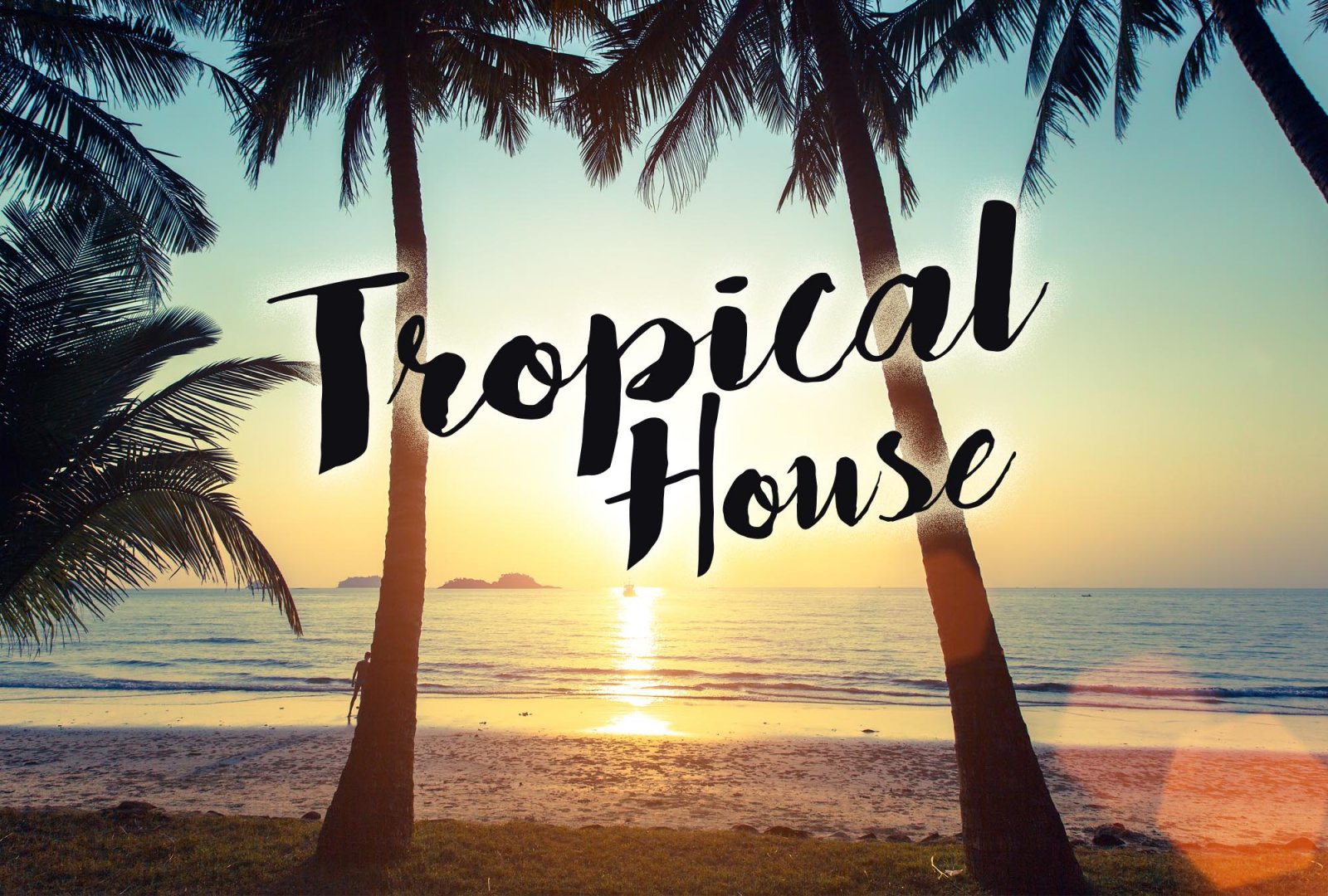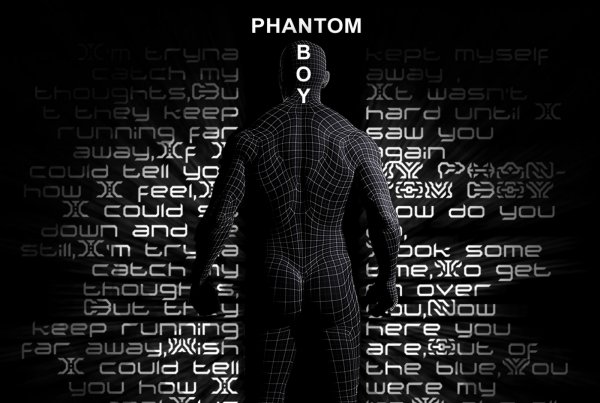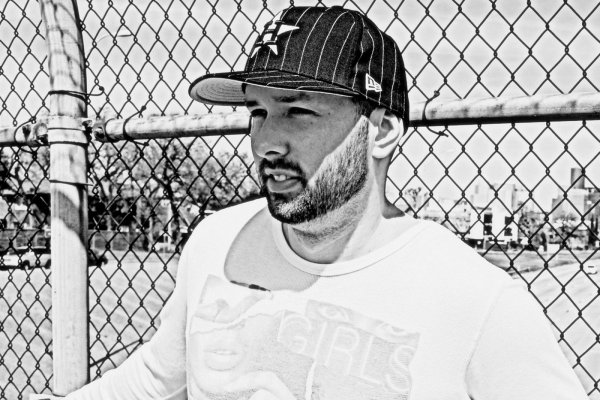Is Tropical House What Happens When Anyone Can Be A Producer?
We now have a younger generation who have grown up with free access to pretty much any music they could ever want and who have no kind of attachment to either the process of obtaining it, or the medium on which its delivered. What does this actually mean for how music is going to be produced and consumed in the years to come?
An examination of the 'Tropical House' genre gives us an insight into what the future might hold. Hugely popular with teenagers, Tropical is a branch of EDM that claims deep house roots but bears very little similarity to the potent, atmospheric and funky music of original deep house players like Chez Damier, Moodymann or Kerri Chandler. Instead the overall feel is of an uber-pastel-shaded version of the kind of novelty euro-dance hits that become huge in Europe at the end of summer vacation, as holiday makers return home and attempt to recreate the magic of their fortnight in Magalluf. Tropical is full of unofficial ‘remixes’ with vocal acapellas from pop and R’n’B re-pitched and stapled onto queasy saccharine-sweet confections featuring nursery rhyme melodies over major chords.

Moodymann
Tropical was formed in a similar way to some older electronic music genres - DJs choose a certain type of song over another, and then producers start to make more of that type of song. But for Tropical, this process has taken place largely on Soundcloud and YouTube, carried out by amateur producers who are constantly re-interpreting previous electronic music ideas as well as sharing and using as a benchmark the (often first attempts at) productions of others. The download link on their music is always enabled - there is no preciousness about keeping their music to themselves, indeed copyright simply doesn’t exist here with seemingly endless grainy ineptly pitch-shifted vocals of various Gouldings, Sheerens and Smiths stuck uncomfortably on top of another plucked acoustic guitar pre-set. The producers seem to have little or no interest in getting signed to a label who might then invest in them - the current business model is to put your unofficial Big-Vocalist remixes up on YouTube channels, get several million views and then work out the royalty split with the major label when they inevitably get in touch.
The lack of interaction with the larger music industry from those creating and consuming Tropical makes it an extraordinarily accessible and democratic model of music production and a perfect example of where digital music culture is at the moment - young producers measure their success by likes and clicks, not by sales, which simply aren’t on their radar. As long as they are credited they don’t care who uses their music on their playlists or channels - its exposure that counts. This complete disinterest in the greater music industry and the absence of any record labels or A&Rs contribute to an air of amateurism to the whole scene, reflecting the under-produced beats, poorly pitch-shifted vocals and child-simple chord progressions of the music. There’s a distinct lack of ‘grown-up’ influence and this, together with the many different languages of the producers and adherents, and the utter lack of regard for musical copyright, add to the undemanding, amateur and unprofessional quality of the online Tropical scene.
The amateurism is also present in the DJing: if you type “Tropical House Mixes” into Youtube you’ll get stacks of results from DJs you’ve never heard of, with mixes that make an old timer wince in their inability to even attempt any kind of beat matching or competent transition yet garnering tens of thousands of ‘sick mix bro’ comments. All the Tropical DJ mixes on YouTube that I listened seem to ignore the last 30 years of DJ progress and simply wait for one song to finish before starting the other. The older generation’s obsession with Sasha-esque beat-matching is simply not relevant to the experience of the vast majority of Tropical fans. They have different preoccupations from their clubbing predecessors.
So a generation grow up believing music to be valueless, at least in financial terms, in a culture that celebrates celebrity over talent and accessibility over specialism, in a world with ever greater access to production and DJ technology - and the result is Tropical House, a perfect example of the new digital music landscape in which hordes of kids produce a huge glut of similar, low quality music, which professes to be part of a larger house culture but is in fact nothing of the sort.
The other side of the argument would be to say that there’s nothing new here: the older generation never understands/likes the music that the kids make, and that anyway, soon their tastes will mature and some of them will become tomorrow’s great artists and producers - not many producers made their best work at 15 years old, right?

Kygo
But there is something fundamentally different going on here. Firstly, yes, not many producers made their best work at 15 years old - they needed time to develop and practice - to get good. In a closed-online-bubble like Tropical, this isn’t happening - the producers aren't getting good. The work doesn't improve, the opinions of its adherents never change, everything is 'sick' or 'awesome' - no one dares to criticise because they're all producers too, and once they've informed everyone just how sick this particular track is, they'll want us to listen to their track too. There is no informed debate, no experts or specialists, and no one is developing any critical faculties. This is why DJ mixes featuring no DJing at all get 100s of glowing reviews and comments. They literally don't know how bad their shit is.
Without the outside influence of a broader culture, the promise of a new world of online, interconnected creativity never materialises. Instead, there's just an endless clawing at shreds of 'fame', in the shape of 'likes' and click-thru counts. Musical development stalls as they clumsily attempt to replicate the music of their EDM idols, which is itself just some kind of lukewarm reheating of a few outdated dance music cliches and tropes anyway.
Secondly, now that the production and distribution process is so accessible, literally anyone can do it, diminishing the actual artistic endeavour - creating house music was often a spiritual thing, a body thing, a soul thing (sound familiar?) but now is often treated as a branch of gaming, something to do to pass the time. Even the software looks like a game - look at Ableton - a fantastically creative tool, which for a huge amount of its users is simply a screen with brightly coloured clips of pre-prepared audio that they can easily move around to 'create' music.
Tropical is just one version of how music is created and consumed digitally - it doesn't have to be like this. The UK Grime scene has also developed online and produces vibrant, exciting, innovative and influential music - music that scares parents and that kids love. The difference is that Grime also exists in the real world - some Grime still gets released on vinyl, there are actual real live MCs, gigs, club nights and events, and Grime is also part of a larger UK Bass and worldwide Hip Hop culture. That's the difference - the real, human element: Grime is part of a real, authentic culture. The digital revolution has freed us up to make and distribute music in quantities that would have been unthinkable a few years ago - but without the human element - without real interaction with the outside world and greater culture, you just end up with Tropical House.
Harold Heath is a freelance writer who contributes to iDJ Magazine, Thump, Ministry of Sound, Traxsource etc. When not writing words about music, Harold is a DJ, producer and music tech teacher.




